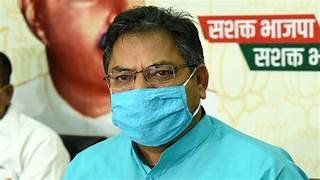In a notable turn of events within the political realm of Himachal Pradesh, six Congress MLAs have faced disqualification due to their involvement in cross-voting during the Rajya Sabha election. The disqualification, which comes as a result of the MLAs allegedly defying the party whip and voting against the official Congress candidate, has sparked widespread debate and raised questions about the stability of the ruling party in the state.
The disqualification of the six Congress MLAs has its roots in the Rajya Sabha election held in the state. The Congress had fielded two candidates for the two Rajya Sabha seats up for grabs. However, during the voting process, six Congress MLAs reportedly voted in favor of the opposition candidate, defying the party’s instructions to vote for the official candidates. This act of cross-voting was viewed as a serious breach of party discipline and loyalty.
Following the Rajya Sabha election, the Congress party initiated disciplinary proceedings against the six MLAs for their alleged misconduct. After conducting an inquiry into the matter, the party leadership determined that the MLAs had indeed violated party discipline by cross-voting against the official candidates. Consequently, the MLAs were expelled from the party and disqualified from holding office under the anti-defection law.
The disqualification of the six Congress MLAs has significant implications for the political landscape of Himachal Pradesh. With the disqualification of these MLAs, the Congress party’s strength in the state assembly has been reduced, potentially impacting its ability to effectively function as an opposition party. Moreover, the disqualification has raised questions about the cohesion and unity within the Congress party in the state.
The disqualification of the six MLAs is also likely to have repercussions for the ruling Bharatiya Janata Party (BJP) government in Himachal Pradesh. With the Congress party weakened by the loss of these MLAs, the BJP may face less opposition and scrutiny in the state assembly, potentially emboldening the ruling party to push through its legislative agenda with greater ease.
Furthermore, the disqualification of the six Congress MLAs has raised concerns about the state of democracy and political ethics in Himachal Pradesh. The act of cross-voting by elected representatives undermines the principles of party discipline and democratic accountability. It also raises questions about the motivations behind such actions and the influence of external factors on the decision-making process of elected representatives.
The disqualification of the six Congress MLAs also serves as a cautionary tale for political parties about the importance of maintaining party discipline and integrity. In a parliamentary democracy, political parties play a crucial role in representing the interests of the people and holding the government accountable. When elected representatives defy party lines and act against the interests of their party, it not only weakens the party’s position but also undermines the democratic process as a whole.
Moving forward, the disqualification of the six Congress MLAs is likely to have a lasting impact on the political landscape of Himachal Pradesh. It remains to be seen how the Congress party will navigate the fallout from this episode and rebuild its strength in the state. Similarly, the ruling BJP will need to carefully manage the implications of the disqualification and ensure that it continues to govern effectively in the face of reduced opposition in the state assembly.
The disqualification of six Congress MLAs in Himachal Pradesh for engaging in cross-voting during the Rajya Sabha election carries extensive consequences for the political scenario of the state. It highlights the challenges of maintaining party discipline and integrity in a parliamentary democracy and raises questions about the stability and cohesion of political parties. As Himachal Pradesh grapples with the fallout from this episode, it underscores the importance of upholding democratic principles and ethical standards in the conduct of elected representatives.









